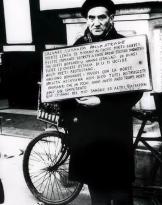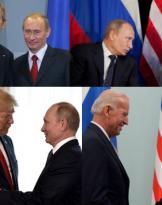In recent years our armed forces have increasingly found themselves operating in international scenarios based on the so-called Peace Support Operations (PSO): that is, operations, preparatory to peace, aimed at prevention, management and solution (conflict prevention, peace-making , peace-keeping, peace-enforcement, peace-building) of crisis situations (outside the national territory and inspired by the principles of solidarity, impartiality and respect for the person.
Situations in which, of course, the use of armed force is certainly envisaged, but only in case of need and in order to achieve the objectives of assistance, stabilization and reconstruction envisaged by the international mandate.
Therefore, since they are not armed conflicts, it is questionable whether, during their implementation, the DIU (International Humanitarian Law) is still applicable, which, by definition, is "ius in bello" (ie, right in the international armed conflict) , and not "ius ad bellum" or, again, ius valid in non-international armed conflicts (albeit with limitations: for example, regarding the recognition of the status of prisoner of war).
And this because, the military contingents engaged in these operations could still find themselves in the need to use (or threaten) the force or, more likely, to suffer it, also in consideration of the asymmetry that characterizes the forces deployed in the field and, sometimes consequently, the lack of mutual respect of international norms (including the DIU: think of a regular army attacked by a group of terrorists or rebels).
At other times, as well represented by the concept of the "Three Block War" (illustrated by General USA Charles Chandler Krulak at the end of the nineties), the soldiers employed outside the area may find themselves leading, at the same time, in the same city, but in three adjacent districts, the entire spectrum of military operations, from humanitarian assistance to peace-keeping and peace-enforcement (to help, to protect and to fight).
Consequently, the doubt may arise whether it is, and in what terms, applicable the DIU, in such contexts: in this perspective, it would seem resolute the publication, by the United Nations, of the Bulletin of the Secretary General, on 6 August 1999 ( concerning "Observance by the Forces under the auspices of the United Nations of the DIU"), which indicates the fundamental principles and rules of international humanitarian law applicable to the United Nations forces involved, with combat duties, including in peacekeeping operations, with particular regard to the protection of the weak parts of the conflict and to the means and methods of combat.
Particular emphasis is placed on the analysis of the consequences that could derive from the components of the multinational force from a possible violation of the DIU itself: violations that would be put under the scrutiny of the individual courts of belonging that they will judge "on behalf of" the same Nations United (from here, the other important question - which will be discussed elsewhere - concerning the application, by our State, of the Military Penal Law of Peace –DPMP- or of War-DPMP- to the contingents operating abroad) .
Also in the national sphere the application of the DIU has been extended to all the contingents that operate outside the area, in peace operations, both under national and multinational aegis: this, in fact, is what is established in the introduction to the Manual of Humanitarian Law (SMD- G-014) in which the application of the ius in bello is affirmed to “any operation of military forces of peace, autonomous or under the aegis of international organizations, involving contingents or rates of Italian Armed Forces in real military operations ".
In summary, therefore, the observance of the spirit and principles of the law of armed conflicts (another definition of the DIU) will still be safeguarded even in the context of peace support operations, well being able to find, a contingent committed to this end, to be involved in hostilities with the degree and intensity of an armed conflict. In this context, in fact, the Commander will have to assess the situation on the ground, regardless of the institutional mandate or the nature of the military operation.
This, however, in the opposite sense, there is a certain doctrine (albeit minority) which considers that the contingents engaged in peace operations are not linked to the respect for the DIU, as they cannot be legally qualified as "conflicting parties".
In any case, regardless of the legal nature of the conflict, the minimum humanitarian standards established by art. 3, common to the four Geneva Conventions of 1949 (which, especially in doubtful cases, can certainly serve as a general reference standard) and by international standards for the protection of human rights.
Marco Valerio Verni
(in the 1994 photo, a convoy of Dutch peacekeepers marching in Bosnia-Herzegovina)
[The author, a lawyer at the Rome Bar, is an expert in criminal law, military criminal law and international humanitarian law. Retired Officer (Role Commissioners) of the Military Corps of the Italian Red Cross, he is also a member of the International Relations Sector of the Rome Bar Association.]












